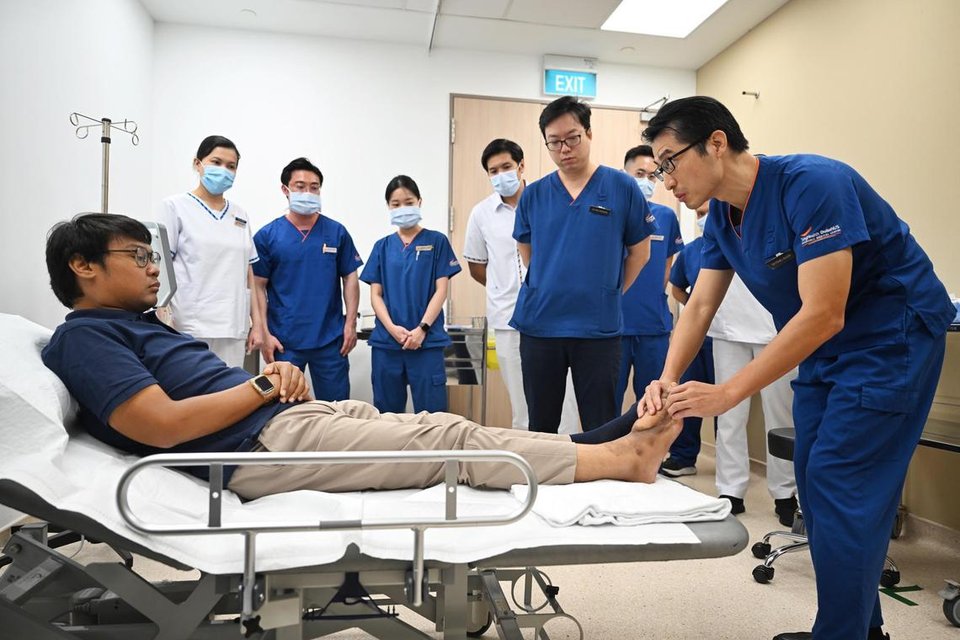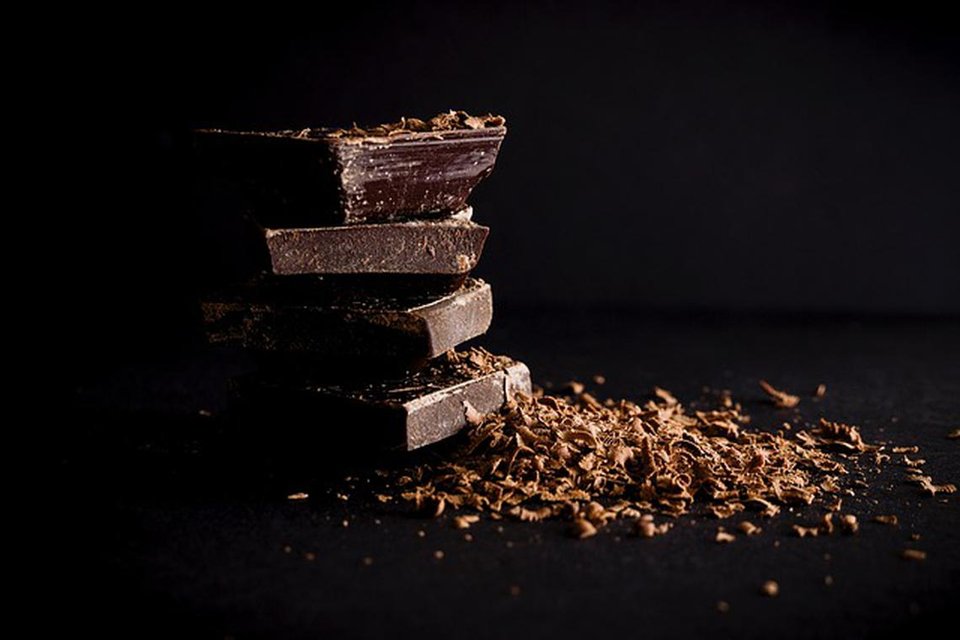Rise in gastric issues during hot weather: How to prevent tummy troubles

Published on
06 Jun 2023
Published by
The Straits Times
SINGAPORE – Is the weather too hot to stomach? As the temperature rises, some doctors are seeing more cases of gastric woes such as indigestion, inflammatory bowel disease and food poisoning.
While the incidence of gastric issues in hot weather is not tracked locally, family physician Sim Sai Zhen says: “Hotter days can contribute to the worsening of gastric issues, loss of appetite, dehydration, and heat-related illnesses such as heat stroke and heat exhaustion.”
This could be because blood is shunted to the skin to help cool the body in hot weather. This reduces blood flow to the gut, causing discomfort or dizziness, adds the consultant at National Healthcare Group Polyclinics.
Doctors say tummy troubles in hot weather mainly appear to be the result of physiological stress on the body. Most affected are vulnerable populations such as the elderly, the very young, pregnant women or those with underlying conditions of the heart, kidneys or gastrointestinal system.
There is little research on the direct effects that heat has on the gastrointestinal system. However, heat can have indirect effects on the digestive system, with heat exhaustion and dehydration leading to gastric symptoms.
Dr Kanak Naidu, senior consultant of acute and emergency care at Khoo Teck Puat Hospital (KTPH), says in hot weather, the hospital sees up to three times more patients with heat-related injuries than in the cooler months.
Most of the heat-related visits to the hospital’s emergency department involve heat exhaustion, almost all cases of which present with some nausea or vomiting, adds Dr Naidu.
Dr Ho Gim Hin, consultant gastroenterologist at KTPH, says during the recent spell of hot weather, he has seen more patients with flare-ups of inflammatory bowel disease (IBD).
Unlike irritable bowel syndrome (IBS), in which patients have a sensitive gut, IBD is an autoimmune disease that can cause stomach pain and diarrhoea.
Dr Ho says IBD flare-ups could be triggered by patients facing more physiological stress during hot weather.
Patients with IBS could also be affected by the heat, as they perspire more, get more dehydrated and, possibly, find the weather affecting their sleep negatively.
This heat-related discomfort causes a stress response in the body that affects organ systems, including the gut, he says.
Another heat-related gastric woe is food poisoning.
Dr Melvin Look, general surgeon and director at PanAsia Surgery, has seen more cases of severe food poisoning during the recent spell of hot weather. “Bacteria and micro-organisms multiply more quickly in warmer temperatures, and food poisoning is more common if strict hygiene is not observed during food preparation and storage,” he says.
Dr Jason Yap, family physician at Parkway Shenton, says gastric issues are common complaints at primary-care clinics like his. He has not seen an increase in patients during hot weather, but says this could be because most of his patients work in air-conditioned offices. Outdoor workers would be more vulnerable to heat-related illnesses.
Also vulnerable are endurance athletes and others involved in prolonged, strenuous activity, according to Dr Wang Yu Tien, gastroenterologist at Gleneagles Hospital. “Studies in athletes showed that there is a higher risk of athletes developing both symptoms and intestinal damage under higher temperatures,” he says, adding that it is important to include breaks for hydration and cooling.
Here is how to avoid some common gastric complaints during hot weather.
Stay cool and hydrated
Dr Stephen Tsao, specialist in gastroenterology and consultant at Raffles Internal Medicine Centre, says the most common complaints he receives are of patients suffering gastric pain, acid reflux or heartburn, and IBS symptoms such as abdominal cramps, diarrhoea or constipation, and bloating.
Dehydration can also lead to similar symptoms, he adds.
He says: “Dehydration may influence our bowel movements and cause more constipation. Other associated symptoms include bloating and abdominal cramps.”
Dr Loo Wai Mun, gastroenterologist at private practice Aliveomedical at Mount Alvernia Hospital, suggests the following to prevent dehydration-related gastric issues: “Drink plenty of fluids, wear lightweight or loose-fitting clothing, avoid the sun at its hottest between 11am and 3pm, and avoid excessive alcohol intake.”
Eat less, more often
Eating heavy meals in hot weather can be a recipe for a stomach upset, says Dr Sim. “One should avoid heavy and rich foods while working outdoors in high temperatures, as the body may shunt more blood from the gut and other organs to the skin to cool down and this may cause gastric discomfort or even dizziness.”
Dr Yap says: “Fatty foods take longer to digest, which can increase metabolic heat production and make you feel uncomfortable in hot weather. Limit your intake of fried foods, heavy creams, fatty meats and greasy snacks.”
He suggests opting for smaller, frequent meals that are easy to digest. “Choose foods rich in water content, such as fruit and vegetables, which can help with hydration. Avoid heavy, greasy or spicy meals that may cause digestive discomfort,” he says.
Consume cooked food promptly
Hot weather and high ambient temperatures increase the risk of cooked food spoiling, says a spokesman for HealthServe, a charity which offers medical care to migrant workers.
It is best to consume food within one hour of cooking, or removal from packaging.
Temperature-controlled storage to keep food at the right conditions will also reduce the risk of spoilage.
Dairy products, coconut cream, seafood, partially cooked meat and cut fruit or raw vegetables all have a higher chance of spoiling when kept at ambient temperatures for long periods of time.
“Curries containing coconut milk and cream-based pastas are some items that consumers may want to avoid, if they are unlikely to consume within one hour of taking away food,” says the spokesman.
Probiotics
Some research has found that heat negatively affects the intestinal microbiome, or the community of beneficial bacteria that lives in the gut and contributes to digestion and overall well-being.
Dr Look suggests eating more natural probiotics such as kombucha and yogurt during hot weather. “Probiotic supplements can also help if you have a weak gut and are susceptible to diarrheal diseases.”
Dr Ho says probiotics can help with symptoms of irritable bowel syndrome. “If patients feel that these months are exacerbating their symptoms, they can go on a course of probiotics to see if it alleviates their complaints.”
Exercise smart
Endurance athletes such as marathon runners may exercise intensely in the heat, and they may also put added strain on their digestive system through refuelling with carbohydrate-heavy gels and supplements.
Researchers from the National University of Singapore’s Yong Loo Lin School of Medicine found that diet and nutrition supplements taken by highly active people could increase their risk of exertional heat stroke.
Associate Professor Jason Lee and Dr Beverly Tan from the Human Potential Translational Research Programme say ingesting large amounts of carbohydrates can lead to vomiting and diarrhoea, and thus to fluid loss.
Commercial energy gels eaten by endurance athletes pack in more carbs than natural foods, and four packs of energy gel – which usually have 20 to 25g of carbs a serving – could cross the threshold of 90g of carbs an hour.
If the lost fluids are not replaced and the athlete begins exercising again, the risk of exertional heat stroke increases.
When it comes to exercise, Dr Yap suggests scheduling it for cooler times of the day, such as the early morning or evening, and making sure to take rest breaks.
“Ignoring the need for rest can increase the risk of heat-related illnesses. Listen to your body’s signals and prioritise rest when necessary.”
Source: The Straits Times © SPH Media Limited. Reproduced with permission.
ALL views, content, information and/or materials expressed / presented by any third party apart from Council For Third Age, belong strictly to such third party. Any such third party views, content, information and/or materials provided herein are for convenience and/or general information purposes only. Council For Third Age shall not be responsible nor liable for any injury, loss or damage whatsoever arising directly or indirectly howsoever in connection with or as a result of any person accessing or acting on any such views, content, information and/or materials. Such third party views, content, information and/or materials do not imply and shall not be construed as a representation, warranty, endorsement and/or verification by Council For Third Age in respect of such views, content, information and/or materials.







